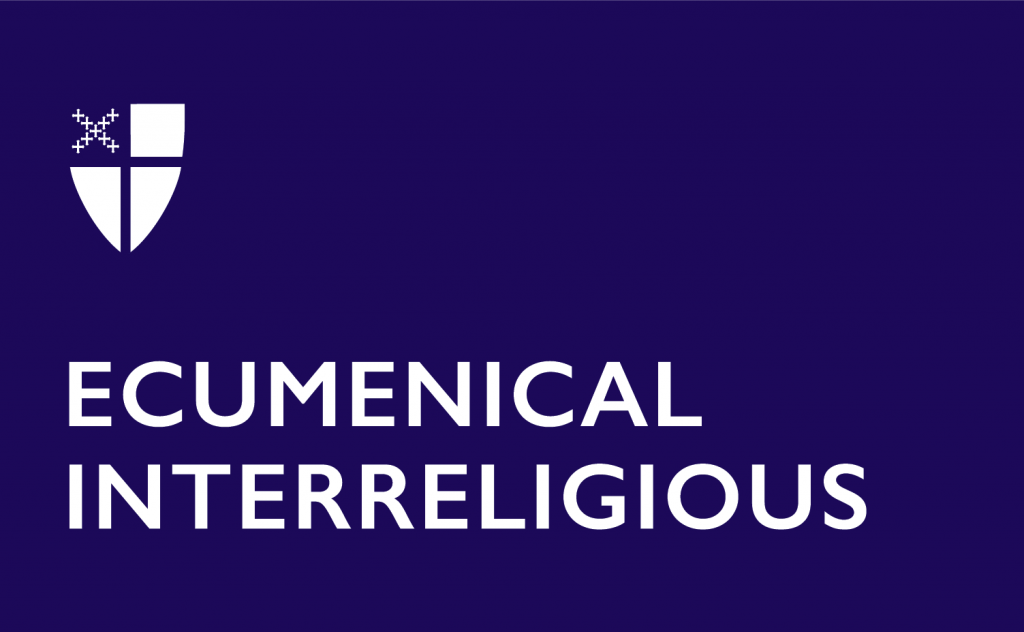What This Work Means to Me
[A version of this was presented to Executive Council on Feb. 10, 2023. A shortened, edited version is presented here.]
In December of 2019, bracing for my final semester of college, I began asking around about church-related internships.
Eventually, I found myself at 815 Second Avenue in The Rev. Margaret’s office talking about ecumenical and interreligious relations. At the time, I didn’t know anything about ecumenism or The Episcopal Church’s dealings with other religious traditions. But here I was, hoping to do some kind of church-related work, eager to help and learn.
Over the past three years, I have had the immense privilege of participating in so many wonderful things that this office does.
I have listened in on meetings of both the Lutheran-Episcopal Coordinating Committee and the Episcopal Church-PCUSA dialogue. These are spaces where crucial conversations happen that sow seeds of unity and hope for worshipers all over the country.
I have sat with the steering committee for Religions for Peace USA, whose members include Buddhists, Orthodox Christians, Unitarian Universalists, Sikhs, and more—all gathered to discuss how we can come together to instill, promote, and live out peace not only between our lives of faith but also out in the world.
I have had life-shaping discussions with Margaret and other colleagues about what it really means to trespass beyond those lines of difference that seek to demarcate us, divide us, and limit the scope of our love.
Shortly after I started my internship in January of 2020, we decided to begin publishing this quarterly newsletter. It has been one of my great joys to get to be a part of this. It has been a joy, of course, because we get to share information, cheering on our colleagues and partners in this work.
But it has also been a joy because when I collect the stories that end up in our final draft, I get a uniquely exciting bird’s-eye view of what is happening in the world of ecumenical and interreligious relations.
When you take in the stories we get to highlight here, you are overwhelmed by the sheer scope of the hands-on, faithful, relational work that is happening all around us. Every time we publish a new newsletter, I am buzzing with inspiration. This great host of faithful siblings, whether Christian or not, are doing something simple but radical: They are asking what kind of work might be spurred on by our love for one another. And then they act out toward the urgency of that question.
Whether it is dealing with the afterlives of colonialism, fostering understanding and love toward our Jewish and Muslim siblings, demanding peace with a coalition of multi-faith partners, or collaborating with Christians who think differently from us, this work is equal parts exciting and challenging, radical and every day.
The fact is, The Episcopal Church cannot address the needs all around us by ourselves. Whether it’s the needs located within our local communities, national commitments that our conscience binds us to, or international groans for justice, it is imperative that we look to our neighbors beyond our church walls.
This work places in sharp relief why Jesus’ prayer was that “they all might be one.” This is no sentimental prayer about the comforts of gathering together in groups. No, it is much more difficult than that. The prayer that they all might be one names the fact that we have been called to take up our cross, to take risks for justice, and that the first step is to find that person with whom you would least like to collaborate and do something even harder with them: love beyond, love bigger, love wider, love in risk, and joy, and fellowship.
We hope you enjoy the stories in this latest newsletter. May you be refreshed in your own ministry by the inspiration of your faithful siblings.
With peace and love,
Hank Jeannel

